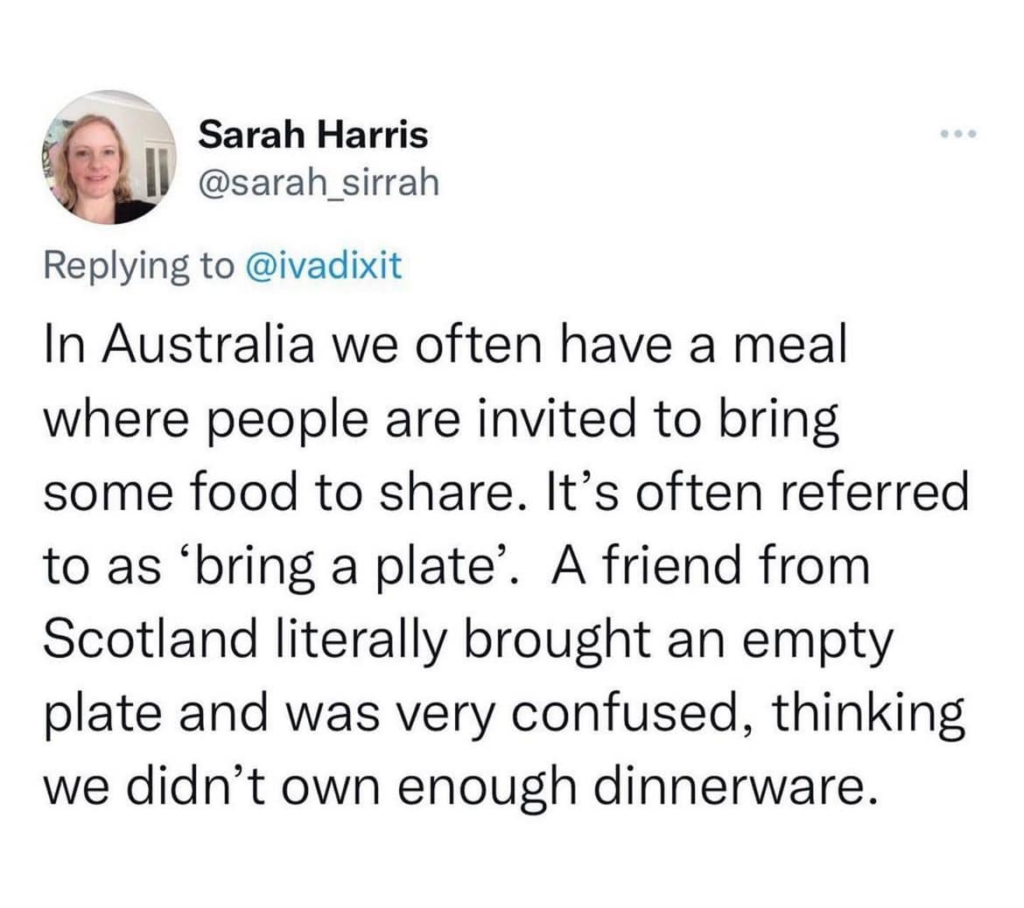These pictures popped up in my social feed:
This example of Australian English was a new one for me:

In Australia we often have a meal where people are invited to bring some food to share. It’s often referred to as ‘bring a plate’. A friend from Scotland literally brought an empty plate and was very confused, thinking we didn’t own enough dinnerware.
I knew the American term, but not the Scottish one

In Scotland, at my Aunt’s, I asked if she had a “comforter”. She was so utterly bewildered. I was 18. I wanted a blanket for my bed – a comforter. Turns out, it’s what they call pacifiers. She thought an 18 year old was asking for a pacifier 😀
For me, from the south of the UK, a pacifier, one of those rubber things babies suck on for comfort, is called a “dummy”. (I readily admit mine is probably the stupidest (literally!) term of the three.)
Speaking American English in the UK can lead to confusion

Many years ago I worked in a pub as a teen and an American came in asking for the rest room. I figured tired tourist, smiled, pointed to all the seats said ‘you can go anywhere’. Comprehension dawned with the shock on his face.
The dangers of misunderstanding certain terms

I’m just remembering that my second year in America, someone asked me to “validate their parking,” which was my first time hearing the phrase, and after blinking stupidly in silence for a full five seconds I said “Well parking is really hard but I’m sure you did it really well”
(When you validate parking, it means that the establishment is willing to cover or reduce the cost of parking for their customers. So the customer was asking for a stamp or a receipt to cover the parking costs. Emotional validation, on the other hand, is the process of recognizing, accepting, and acknowledging someone’s emotions as valid and understandable.)

In college, my fellow student worker Maureen used the phrase “I’m sorry, I’m ‘on the rag’ right now” to me to explain why she was out of sorts. I explained its actual meaning to her, and she was embarrassed. She thought it meant “out of sorts” and had been using it liberally.
(‘On the rag’ actually means to be having your period. So called because people used to use rags down there, when sanitary towels weren’t a thing, yet.)

Heddwen Newton is an English teacher and translator. She is fascinated by contemporary English and the way English changes. Her newsletter is English in Progress. More than 2300 subscribers and growing every day!